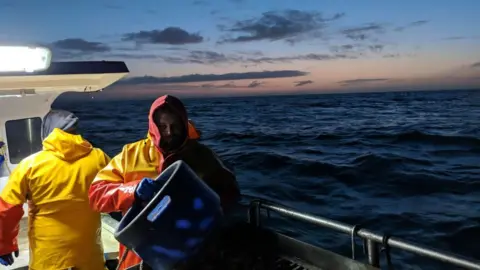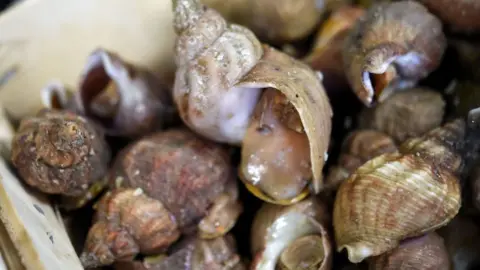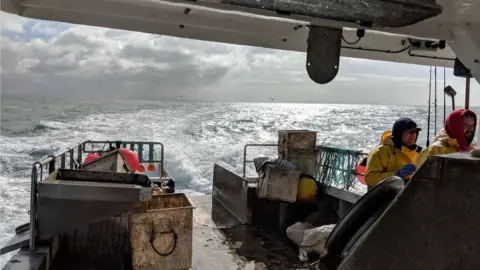Why are whelks caught in Wales popular in South Korea?
 BBC
BBCThey are closely related to snails, taste like "nan's toenails" and, in Wales, you cannot give them away.
But those fishing for whelks off the coast of Wales claim they are popular in Japan and South Korea.
Each year 10,000 tonnes of them are caught in the Bristol Channel but virtually all end up in Asia.
Gavin Davies has spent the last 20 years catching sea snails, but in that time he has not developed a love for the acquired taste of whelks.
"Goodness knows why they like them - they taste like nan's toenails - but it's given me a living for the last two decades," he said.
"I'm not even sure how they developed a taste for whelks, as they're only native to waters around Britain and the Atlantic."
Each night Mr Davies sets off from Saundersfoot and harvests one tonne of whelks from 1,000 pots suspended from 50 buoys in the bay around Carmarthenshire.
 Getty Images
Getty ImagesThey are driven to Milford Haven, where they are loaded on to a factory ship which cooks and freezes them en-route to Asia.
But Mr Davies said he was lucky if he could give away a couple of carriers to Welsh customers.
Hywel Griffith - the Michelin-starred head chef of The Beach House on Swansea's Oxwich Bay - believes whelks are misunderstood.
"There's two issues, really," he said.
"One is the traditional image of whelks being cheap food, served out of a barrow on East End back streets, and the other is the idea that they are chewy and rubbery, but it's all about how you cook them.

"The same people who turn their noses up at whelks will flock for scallops.
"In Asia they're usually served with chilli and soy sauce, but I think I'd give them a more European twist, maybe some deep-fried and others simmered in white wine, cream and garlic."
Mr Davies said not only are they low in fat and high in vitamins, they are also good for the environment.
"You can't get more sustainable than whelks. There's an abundant stock of them in the Bristol Channel and the pots cause virtually no harm to the seabed.
"And when we're all wondering how we're going to trade after Brexit, well here's this amazing resource which we won't eat, but they can't get enough of on the other side of the world."
Gavin Davies and his crew feature in Nightshifters on BBC One Wales on Friday at 19:30 GMT and on BBC iPlayer.
